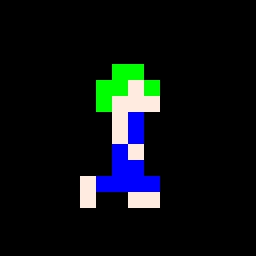Don’t really know how to explain this. I like sci fi and would love to dig deeper into it. Am avid reader and enjoyed Project Hail Mary (though set in space, this book is just amazing), Dune, short stories by Ray Bradbury and TV shows like Raised by the Wolves, Westworld, From (love From!). But e.g. Foundation I really disliked. Wheel of time is massive and I lost interest. Even the guide through galaxy I appreciated but was not really into it. Somehow, all those lots of traveling, lots of worlds, lots of many novel/invented names and terms render reading laborious for me.
Can you help me pin what is that I like and perhaps offer me a suggestion where to start? Thanks!
EDIT: thanks everyone for your excellent suggestions! So happy to be a part of lemmy community. I might make a follow up thread in couple of months so we can discuss some of the works. And lastly, if you been reading this far: have a good weekend.
Rendezvous with Rama by A. C. Clarke. Honestly, anything by Clarke fits your criteria very well. Very little world building or character development, just straight to the point hard (but still amazing!) sci-fi. His short stories are fun too.
P.S. You may stumble across legends that Rama has three sequels. Don’t believe them, there is only one book. And even if it were true, the sequels wouldn’t be written by Clarke despite him being listed as a co-author.
I just want to put this out here, to ponder…it’s essentially a skill to be able to juggle and take in new jargon and stuff. It’s something you learn. I learned it as a child, so it’s second nature to me–but there was absolutely a time when I struggled!
So the question is: Do you want to develop that skill? (You don’t have to answer me, I’m just proposing the question so you can ponder it.) I’m assuming here when you say the complexity is what puts you off, that this is accurate. And maybe it is. But there’s a bit of a slog initially when reading SFF where you have to power through to gain the skill to follow these things–you’re literally training your mind to take in new data in a way that doesn’t much happen outside of SFF.
But also…what if the reason you bounced off the books listed is something else? What if it’s not complexity, but the delivery? The style of narration or prose? A lot of the works you list MANY people bounce off, not due to complexity but due to the authors’ voice and delivery.
I myself can’t get into WoT or the book version of Game of Thrones or Foundation. I can’t get into Tolkien either. Which is an abject sin in some circles!
But it’s not because those books are complicated. Or because of the jargon. I’m fine with both in many other books, and disliking certain well-known behemoths of SFF doesn’t negate that I read things like The Quantum Thief by Hannu Rajaniemi (which was pretty darn confusing and complicated) or Gideon the Ninth. Or all the stuff I read as a kid.
It’s because the specific writing style turns me off. Asimov, for example, is kinda known for his cardboard characters. Tolkien world-builds like an academic, and a lot of his stuff is a huge slog like much dry research in academia. Wheel of Time likewise doesn’t have that “something” in style or voice to make his worldbuilding engaging, nor does George R. R. Martin’s Game of Thrones.
But I am a huge fan of authors who make big, complicated worlds who have a more interesting/engaging way of presenting what they have created. It’s not the complexity or jargon that puts me off in those other books, it’s the writing style.
Maybe it’s the same with you?
Yes, yes, you are totally correct - delivery can make all the difference.
But I have to add that my main problem is that I am a scientist and big part of my job is to read immense amount of literature and memorize/connect often obscure terms. So when I read for pleasure (I love my job, but still) what I tend to enjoy the most are character heavy, emotional books with beautiful prose, written by people with deep understanding of life. Quite opposite to the academic literature.
So you are right, yes, this slog issue is not restricted to SF (e.g. I don’t read epic fantasy either; GoT and LOTR books I skipped myself as well), but SF in particular is something I really want to dig deeper, as there the ideas challenge my brain and remain lingering far after I finish the piece.
But! - I prefer to do it without being forced into a memory challenge. Because if I start and within the first two pages there are 15 names and 3 planets and lots of traveling (i really damn hate descriptions of pure traveling, like please lets just skip that part) then I lose interest in the main idea and the ideas are what I am after.
So Tldr yes, you are absolutely right, it is also the prose and the delivery, but still no prose or delivery would keep me long motivated or make me deeply enjoy reading work which has too many names or weird, invented terms.
Short stories are the best way to go, anything by Ted Chiang for example
I’ll throw in Ursula K. Le Guin’s Left Hand of Darkness and The Dispossessed. Both classics that are great page turners. Take place against the backdrop of an intergalactic society but remain focused on singular planets and their societies (well if you include their anarchic moons). Great characters with meaningful relationships. Left Hand has more of an interpersonal focus, Dispossessed more societal, but both amazing in their own way.
I’m surprised no one has mentioned The Culture series by Iain M. banks. Much like Dune there is a ton of world building that occurs in the novels but it’s not the focus of any one novel. You can read them independently and still enjoy them. The concepts he tackles in the novels were way ahead of their time and his prose and s second to none. The novel Consider Phlebas is typically where most people start, but I started The Player of Games.
Late to this party and I have to agree to Ian M Banks, Ursula K Le Guin, Philip K Dick (very weird, discontinuous, but free-floating and fascinating) and many more. Just to add a couple of things that HAVEN’T been mentioned, that really may get your sci-fi juices flowing: Brian Aldiss’s expansive “Helliconia” trilogy is a cracker - and I think you may see echoes of it in the premise of “Game of Thrones”. I’d also like to plug John Brunner - his work “The Shockwave Rider” is dated now, but essential reading. It is the first book to ever feature the idea of a computer virus. Also DO follow up on “The Machine Stops” by EM Forster - full text available online for free. If it doesn’t BLOW YOUR MIND that it features social media overload, and was written in 1909, well, nothing will.
In new wave sci fi, you might also want to check out J.G. Ballard - too weird and hardcore for many, but the missing link between Moorcock-style sci-fi and mainstream fiction - think 1960s to 1990s Black Mirror. One last recommendation. If you have time and interest, check out the much neglected and ultra-weird work of C.L. Moore. Her “Northwest Smith” character is the prototype for Han Solo for sure, (Space Pirate and smuggler with a concealed heart of gold, flies a deceptively fast ship with just one crewman, who’s an alien. Carries a “heat blaster” which is also configurable as a energy sword. Too many coincidences!)
Never too late for good recommendations! I am happy such a good collection of suggestions was made, not just for me but for everyone. Thanks for contributing!
Dune but I’m not that far in yet





